Alvin
Senior Member (Voting Rights)
@_NathalieWright's withering @Independent piece lays bear the gaps in how #mecfs is viewed on either side of the pond and the vested interests that have contributed to the disability and death of millions.
http://www.independent.co.uk/news/l...chronic-fatigue-illness-disease-a8133616.html
It is one of if not the first high-profile pieces to tackle the institutional incentives and various forms of motivated reasoning underlying the "biopsychosocial" model.
#mecfs is an extremely debilitating condition as well as an incredibly common one. It is also usually lifelong (hitting early, but rarely lethal), leaving many unable to work for decades. Acknowledging our existence would be unbelievably expensive.
I've heard many patients argue that these facts are at the heart of why this condition and the people living with it have been so mistreated. But observing a set of facts isn't the same thing as proving intent.
The ignorance may not be willful, merely convenient.
My most generous interpretation: everyone is the good guy in their own story and the motivation to remain the good guy can bend and distort all logic, data, reason and even empathy under its need. Less generous: it is *both* willful and highly convenient.
First, there is the argument that disability benefits can make patients worse by fostering a "culture of dependency." Under a veneer of science, denying disabled #pwme the benefits that could prevent poverty, homelessness, death is not only cheap, it's doctor-recommended.
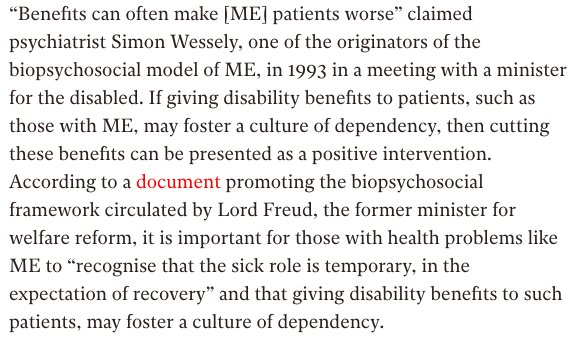
Then, there is this actual acknowledgement from a private insurer that #mecfs could cause them to "lose millions" and that it should be treated as "neurosis with a new banner."
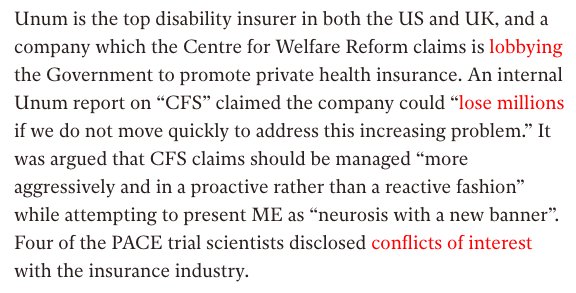
Here, I need to cc: @AdyBarkan @SFdirewolf @dominickevans @cjp_still @Lollardfish @crippledscholar to help me . place this story in a broader context. Is this common to other dx's? Does this surprise you? Is it as f'ing insane as it feels?
Then there is the shoddy science (and that is, again, the most generous possible frame) propping all of it up.
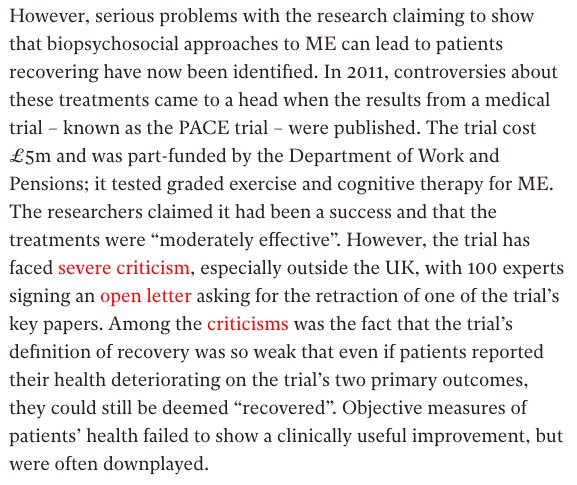
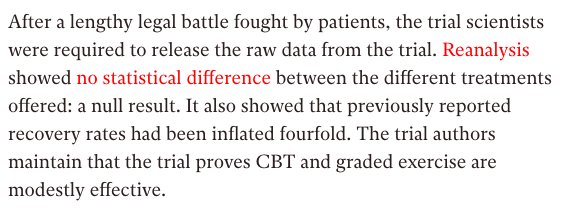
What, then, is the response to scientific critique? It's to take these welfare-seeking patients and cast them as unhinged militants.
https://www.theguardian.com/society/2011/aug/21/chronic-fatigue-syndrome-myalgic-encephalomyelitis
It's been an astonishingly effective narrative in the UK for the last twenty years and the media – until today – has bought it hook, line, sinker.
I've been fighting hard to change culture, end stigma, open hearts, help us empower each other and find strength, community and pride in one another.
It's astonishing to take a step back, to look at the arc of the last 30 years and realize the stigma wasn't just this amorphous, unfortunate, miasma. It was and has always been a weapon:
One used to dismiss scientific criticism and discredit what patients have been saying about their lives, bodies, experiences for decades. Gaslighting on an epic scale.
The costs are poverty:
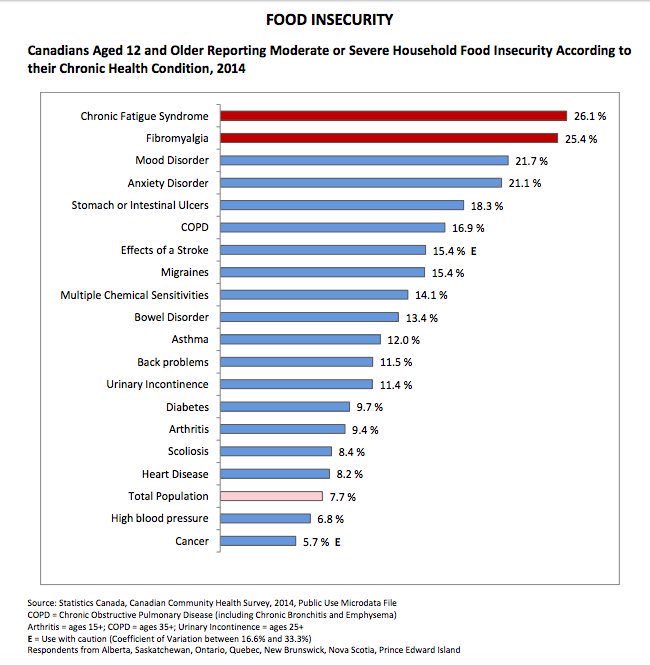

Increased disability due to zero approved treatments

Quality of life scores: http://journals.plos.org/plosone/article?id=10.1371/journal.pone.0132421
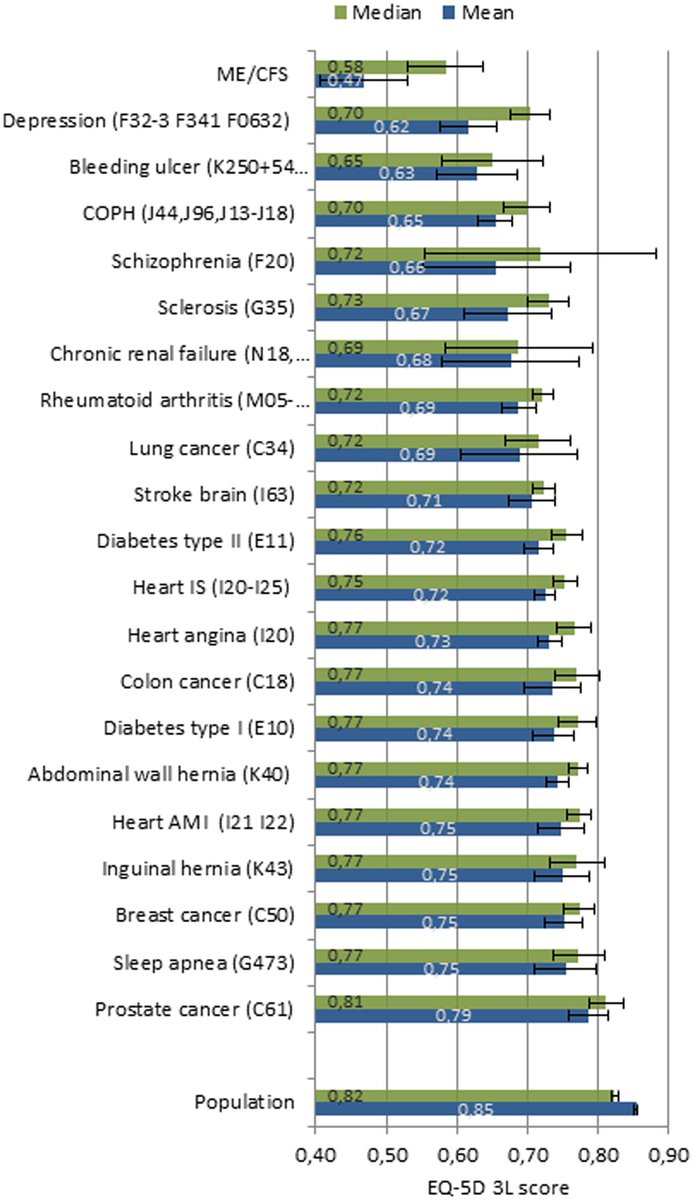
Scientific neglect
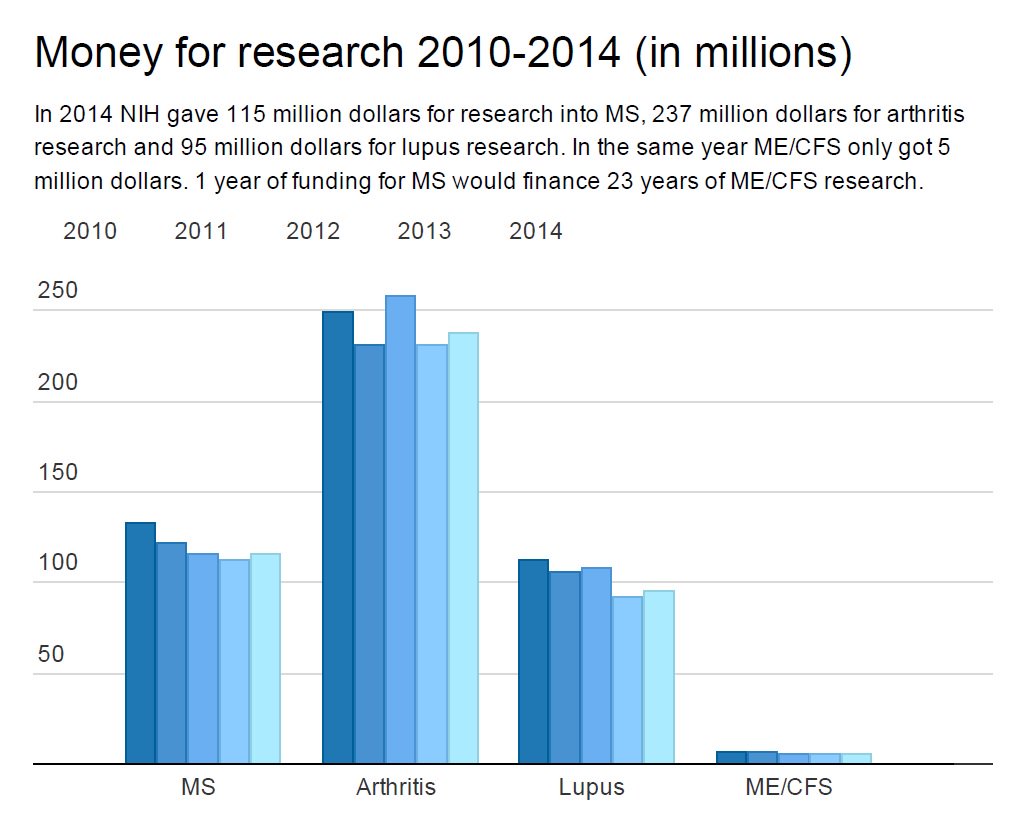
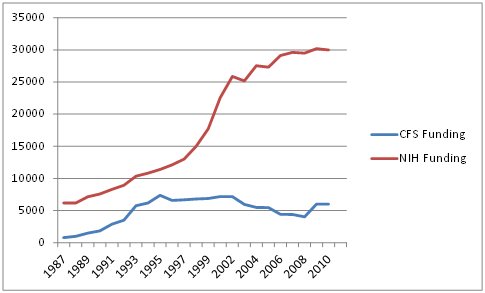
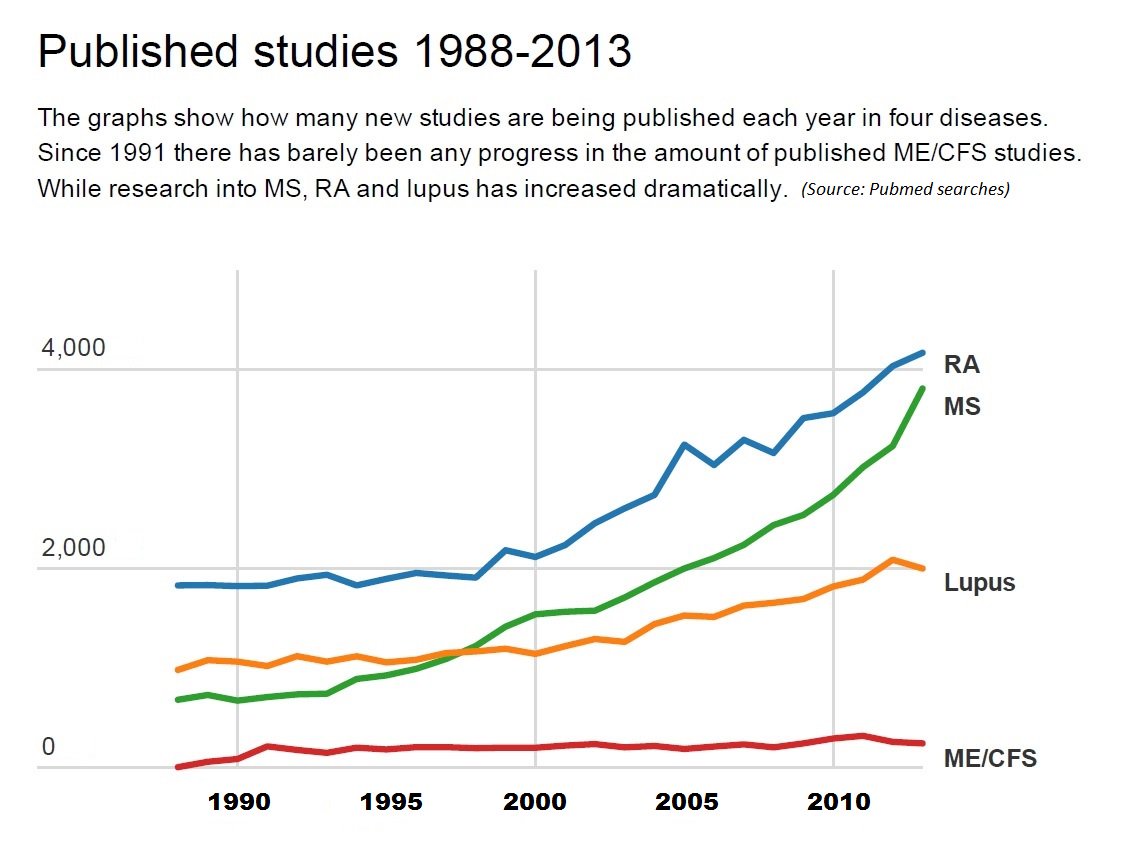
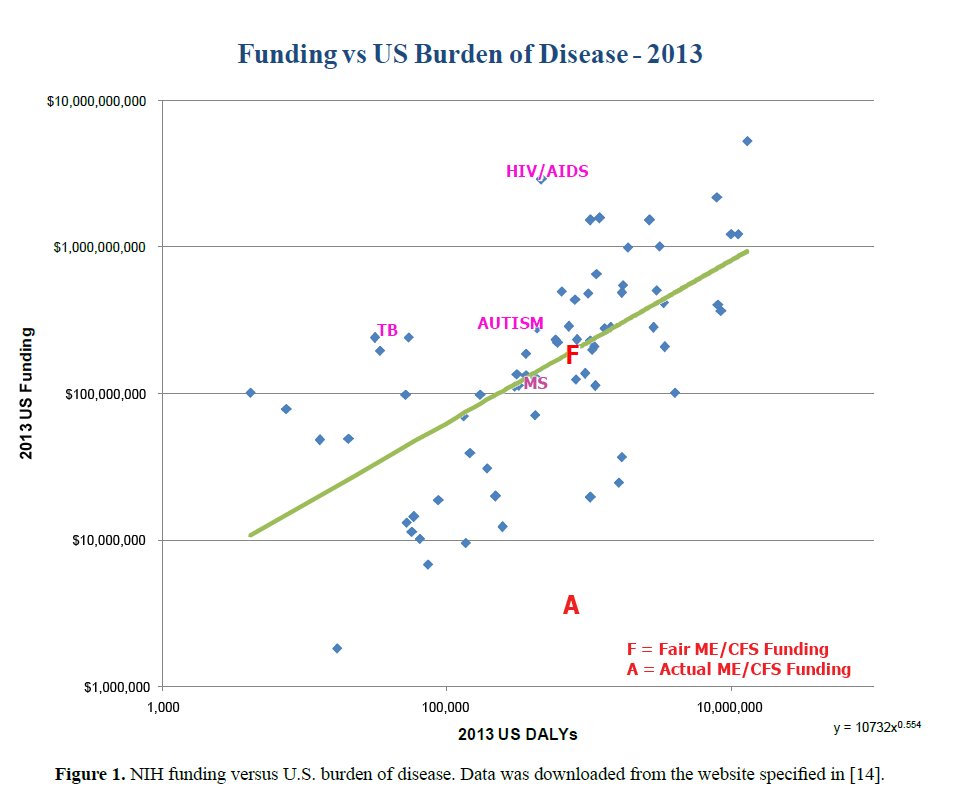
And death – by suicide and disease-related complications: http://www.ncf-net.org/memorial.htm (missing many people from the last 3-6 months)
Source: twitter.com/jenbrea/status/949819417927540737
http://www.independent.co.uk/news/l...chronic-fatigue-illness-disease-a8133616.html
It is one of if not the first high-profile pieces to tackle the institutional incentives and various forms of motivated reasoning underlying the "biopsychosocial" model.
#mecfs is an extremely debilitating condition as well as an incredibly common one. It is also usually lifelong (hitting early, but rarely lethal), leaving many unable to work for decades. Acknowledging our existence would be unbelievably expensive.
I've heard many patients argue that these facts are at the heart of why this condition and the people living with it have been so mistreated. But observing a set of facts isn't the same thing as proving intent.
The ignorance may not be willful, merely convenient.
My most generous interpretation: everyone is the good guy in their own story and the motivation to remain the good guy can bend and distort all logic, data, reason and even empathy under its need. Less generous: it is *both* willful and highly convenient.
First, there is the argument that disability benefits can make patients worse by fostering a "culture of dependency." Under a veneer of science, denying disabled #pwme the benefits that could prevent poverty, homelessness, death is not only cheap, it's doctor-recommended.

Then, there is this actual acknowledgement from a private insurer that #mecfs could cause them to "lose millions" and that it should be treated as "neurosis with a new banner."

Here, I need to cc: @AdyBarkan @SFdirewolf @dominickevans @cjp_still @Lollardfish @crippledscholar to help me . place this story in a broader context. Is this common to other dx's? Does this surprise you? Is it as f'ing insane as it feels?
Then there is the shoddy science (and that is, again, the most generous possible frame) propping all of it up.


What, then, is the response to scientific critique? It's to take these welfare-seeking patients and cast them as unhinged militants.
https://www.theguardian.com/society/2011/aug/21/chronic-fatigue-syndrome-myalgic-encephalomyelitis
It's been an astonishingly effective narrative in the UK for the last twenty years and the media – until today – has bought it hook, line, sinker.
I've been fighting hard to change culture, end stigma, open hearts, help us empower each other and find strength, community and pride in one another.
It's astonishing to take a step back, to look at the arc of the last 30 years and realize the stigma wasn't just this amorphous, unfortunate, miasma. It was and has always been a weapon:
One used to dismiss scientific criticism and discredit what patients have been saying about their lives, bodies, experiences for decades. Gaslighting on an epic scale.
The costs are poverty:


Increased disability due to zero approved treatments

Quality of life scores: http://journals.plos.org/plosone/article?id=10.1371/journal.pone.0132421

Scientific neglect




And death – by suicide and disease-related complications: http://www.ncf-net.org/memorial.htm (missing many people from the last 3-6 months)
Source: twitter.com/jenbrea/status/949819417927540737
Last edited:
